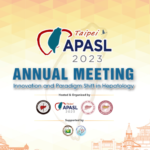
Editor's Note: In the just-concluded 65th American Society of Hematology (ASH) Annual Meeting, CAR-T therapy emerged as a crucial advancement in the treatment of Multiple Myeloma (MM). The only approved BCMA CAR-T in China, Idecabtagene Vicleucel (CT103A), shone brightly. Professor Chunrui Li and her team from Tongji Hospital, Tongji Medical College, Huazhong University of Science and Technology, presented a study (abstract 761) reporting the efficacy and safety data of CT103A in refractory/relapsed MM, garnering widespread attention. "Tumor Insights" had the privilege of interviewing Professor Li at the event, delving deep into the advancements in MM treatment and future directions.
Hematology Frontier: Can you discuss the significant advancements in the treatment of Multiple Myeloma (MM) at this year’s ASH conference?
Professor Chunrui Li: At this ASH conference, advancements in the treatment of multiple myeloma have primarily focused on several aspects: ① In-depth research on CAR-T therapy, transitioning from single-target CAR-T to exploring dual-target CAR-T. Numerous studies have addressed relapse and adverse reactions post CAR-T treatment. ② Progress in Antibody-Drug Conjugates (ADC) and bispecific antibodies, such as the long-term follow-up data on the monotherapy of BCMA/CD3 bispecific antibody Teclistamab and studies combining it with CD38 monoclonal antibodies and pomalidomide. ③ Additionally, there have been announcements of data from new targeted treatments and clinical studies.
#2
Hematology Frontier: Idecabtagene Vicleucel (CT103A) was officially approved in China in June this year. Could you introduce the mechanism, efficacy, and safety advantages of this drug in the treatment of multiple myeloma?
Professor Chunrui Li: The efficacy data of Idecabtagene Vicleucel (CT103A) have been disclosed at previous EHA and IMS conferences. Early data shows impressive efficacy, manageable safety, and excellent CAR-T pharmacokinetic data. CT103A is the first approved and only fully human, BCMA-targeting CAR-T product in China. It uses a lentivirus as a gene vector to transfect autologous T cells, incorporating a fully human scFv, CD8a hinge and transmembrane, 4-1BB co-stimulatory, and CD3ζ activation domains in its CAR structure. The unique CAR-T structure helps it evade host anti-CAR immunogenicity, maintaining low immunogenicity while retaining anti-tumor activity and improving the persistence of CAR-T in vivo. Furthermore, its binding domains for both heavy and light chains can adequately cover the antigenic epitope of BCMA on myeloma cells. Thus, CT103A’s design is expected to overcome immunotolerance, rapidly clear myeloma cells, effectively enhance immune surveillance, and prolong anti-tumor effects.
In terms of efficacy data, the Phase Ib/II study, co-led by our center and Professor Lugi Qiu’s team from the Institute of Hematology, Chinese Academy of Medical Sciences, involved 14 centers nationwide. As of December 31, 2022, with a median follow-up time of 18.07 months, the results showed: ① Among 103 evaluable patients, profound and sustained responses were observed, with an overall response rate (ORR) of 96.1%. The rate of stringent complete response/complete response (sCR/CR) was 77.7%. Among 91 subjects with no history of CAR-T treatment, the ORR reached 98.9%, and the sCR/CR rate reached 82.4%. The 12-month progression-free survival (PFS) rate was 85.5%. ② The median time to achieve minimal residual disease (MRD) negativity was 15 days. The MRD negativity rate was 94.2% in the overall population, and all patients achieving CR or above reached MRD negativity. 80.8% of patients maintained MRD negativity 12 months after infusion.
In terms of safety, most cytokine release syndromes (CRS) were Grade 1-2, with only one patient reaching Grade 3. Two patients experienced immune effector cell-associated neurotoxicity syndrome (ICANS), with one at Grade 1 and one at Grade 2, both rapidly recovering after intervention. Moreover, Idecabtagene Vicleucel can persist in the body for an extended period, with 40% of patients still detecting CAR-T presence 24 months after infusion.
Therefore, considering efficacy, safety, and in vivo persistence data, Idecabtagene Vicleucel (CT103A) is an outstanding product. It was approved by the NMPA in June for the treatment of relapsed or refractory multiple myeloma (RRMM) in adult patients who have received three or more prior lines of systemic therapy. With more CAR-T products like CT103A getting approval, it is expected to change the landscape of RRMM treatment, offering hope for functional cures.
#3
Hematology Frontier: Could you introduce the FUMANBA-1 study reported by your team at this year’s ASH conference?
Professor Chunrui Li: In fact, our team’s presentation of the FUMANBA-1 study at this year’s ASH conference primarily analyzed the clinical characteristics and efficacy prognosis of patients who achieved MRD negativity after receiving Idecabtagene Vicleucel (CT103A) treatment. This includes the association between MRD negativity maintenance and CAR-T pharmacokinetics. As mentioned earlier, among 103 patients, 94.2% achieved MRD negativity, with 80.8% of patients maintaining MRD negativity 12 months after infusion.
The baseline clinical characteristic analysis of MRD-negative patients showed that, among baseline features such as age, ECOG score, disease stage, tumor burden, prior treatment lines, refractory status, and history of autologous stem cell transplantation (ASCT), only high-risk cytogenetic abnormalities, baseline BCMA overexpression, and receiving bridging treatment were significant risk factors affecting MRD negativity maintenance.
Further analysis of the association between MRD negativity maintenance time and DOR as well as PFS revealed that the longer the MRD negativity maintenance time, the longer the PFS and DOR. This suggests that MRD negativity maintenance time can serve as an important biological marker for evaluating the long-term efficacy of Idecabtagene Vicleucel (CT103A). Additionally, the relationship analysis between the duration of CART cell vector copies (VCN) survival and MRD negativity maintenance time showed a positive correlation, especially in subgroups of patients with high-risk cytogenetic abnormalities, prior ASCT treatment, triple exposure, and those receiving bridging treatment.
Overall, Idecabtagene Vicleucel (CT103A) has brought a high rate of MRD negativity and persistent MRD negativity to RRMM patients, thereby improving patient survival.
#4
Hematology Frontier: Can you share the challenges and future exploration directions in the diagnosis and treatment of MM?
Professor Chunrui Li: Without a doubt, CAR-T has achieved tremendous success in the treatment of multiple myeloma, with BCMA-targeted CAR-T being the most widely applied. Currently, two foreign (Abecma and Carvykti) and one domestic (Idecabtagene Vicleucel) BCMA-targeted CAR-Ts have been approved and marketed. This has changed the landscape of RRMM treatment. However, it’s essential to note that CAR-T treatment still faces certain challenges, such as relapse and suboptimal efficacy post-CAR-T treatment. This is an area that needs improvement in the future. In terms of CAR-T targets, BCMA is currently the most widely used target. However, according to preclinical and clinical data, GPRC5D has shown good efficacy in treating RRMM. Whether the combination of BCMA and GPRC5D, dual-target CAR-T, can further improve efficacy remains unclear and requires further confirmation through clinical research.
Furthermore, in terms of CAR-T safety, cytokine release syndrome (CRS) and immune effector cell-associated neurotoxicity syndrome (ICANS) are essential factors limiting its clinical application, especially in relatively basic medical centers where experience in handling CAR-T adverse reactions may be lacking. Therefore, we recommend exploring CAR-T treatment primarily in large medical centers, where the experience in dealing with adverse reactions is relatively mature, before gradually promoting it to grassroots hospitals. Additionally, reducing adverse reactions to CAR-T treatment is also one of the current research directions.

Director, Professor, Doctoral Supervisor
Secretary of the Party General Branch and Deputy Director of Medical Affairs, Department of Hematology, Tongji Hospital, Tongji Medical College, Huazhong University of Science and Technology
Specialization: Immunotherapy for Hematologic Malignancies
Committee Member, Plasmacytic Diseases Professional Group, 11th Committee of the Hematology Branch, Chinese Medical Association
Chairman, Expert Committee on Hematology (Hubei), Gerontology and Geriatrics Society of China Gerontology and Geriatrics Society
Executive Committee Member, Gerontology and Geriatrics Society of China Gerontology and Geriatrics Society
Youth Committee Member, Hematology Branch, Chinese Medical Association Oncology Branch
Committee Member, Myeloma and Plasmacytic Diseases Group, 5th Committee of the Hematology and Tumor Committee, Chinese Anti-Cancer Association
Youth Committee Member, Leukemia Alliance & Lymphoma Alliance, Chinese Society of Clinical Oncology
Deputy Chair, Blood Branch, Hubei Medical Biological Immunology Society
Principal Investigator for Four National Natural Science Foundation Projects
Published over 20 SCI papers as the first or corresponding author, including publications in renowned journals such as Blood.


